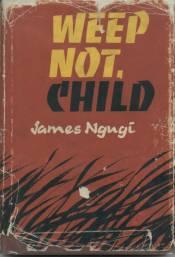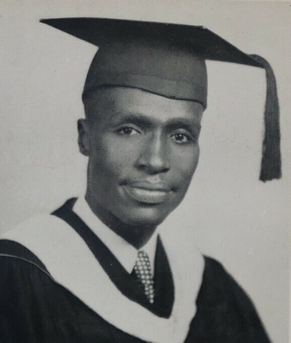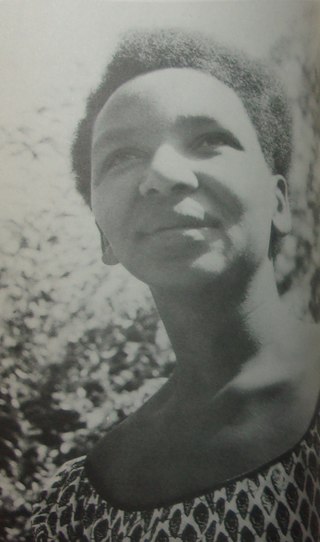
A part of Eastern Africa, the territory of what is known as Kenya has seen human habitation since the beginning of the Lower Paleolithic. The Bantu expansion from a West African centre of dispersal reached the area by the 1st millennium AD. With the borders of the modern state at the crossroads of the Bantu, Nilo-Saharan and Afro-Asiatic ethno-linguistic areas of Africa, Kenya is a truly multi-ethnic state.

Louis Seymour Bazett Leakey was a Kenyan-British palaeoanthropologist and archaeologist whose work was important in demonstrating that humans evolved in Africa, particularly through discoveries made at Olduvai Gorge with his wife, fellow palaeoanthropologist Mary Leakey. Having established a programme of palaeoanthropological inquiry in eastern Africa, he also motivated many future generations to continue this scholarly work. Several members of the Leakey family became prominent scholars themselves.

The Mau Mau rebellion (1952–1960), also known as the Mau Mau uprising, Mau Mau revolt, or Kenya Emergency, was a war in the British Kenya Colony (1920–1963) between the Kenya Land and Freedom Army (KLFA), also known as the Mau Mau, and the British authorities.

The Kikuyu are a Bantu ethnic group native to Central Kenya. At a population of 8,148,668 as of 2019, they account for 17.13% of the total population of Kenya, making them Kenya's largest ethnic group.
Meja Mwangi is a Kenyan writer. He has worked in the film industry, including in screenwriting, assistant directing, and casting.

Josiah Mwangi Kariuki, popularly referred to as 'JM', was a Kenyan socialist politician during the administration of Jomo Kenyatta's government. He held different government positions from Kenya's independence in 1963 until his assassination in 1975.

Robert Ruark was an American author, syndicated columnist, and big game hunter.

Mũkoma wa Ngũgĩ is a Kenyan American poet, author, and academic. He is associate professor of literatures in English at Cornell University and co-founder of the Safal-Cornell Kiswahili Prize for African Writing. His father is the author Ngũgĩ wa Thiong'o. His family was deeply impacted by the bloody British suppression of the Mau Mau revolution.

Kenyan literature describes literature which comes from Kenya. Kenya has a long oral and written literary tradition, primarily in English and Swahili, the two official languages of the country.

Weep Not, Child is a 1964 novel by Kenyan author Ngũgĩ wa Thiong'o. It was his first novel, published in 1964 under the name James Ngugi. It was among the African Writers Series. It was the first English novel to be published by an East African. Thiong'o's works deal with the relationship between Africans and white settlers in colonial Kenya, and are heavily critical of colonial rule. Specifically, Weep Not, Child deals with the Mau Mau Uprising, and "the bewildering dispossession of an entire people from their ancestral land." Ngũgĩ wrote the novel while he was a student at Makerere University.

Petals of Blood is a novel written by Ngũgĩ wa Thiong'o and first published in 1977. Set in Kenya just after independence, the story follows four characters – Munira, Abdulla, Wanja, and Karega – whose lives are intertwined due to the Mau Mau rebellion. In order to escape city life, each retreats to the small, pastoral village of Ilmorog. As the novel progresses, the characters deal with the repercussions of the Mau Mau rebellion as well as with a new, rapidly westernizing Kenya.

Carcase for Hounds is a novel by Kenyan writer Meja Mwangi first published in 1974. The novel concerns the Mau Mau liberation struggle during the latter days of British colonial rule and attempts, by the actions of the main protagonists, to show how Mau Mau was organized and why it took so long for the colonial government to defeat them. Carcase for Hounds received mixed reviews. The novel was also adapted into a movie by Ola Balogun, Cry Freedom.

East Africa Command was a Command of the British Army. Until 1947 it was under the direct control of the Army Council and thereafter it became the responsibility of Middle East Command. It was disbanded on 11 December 1963, the day before Kenya became independent, and replaced by British Land Forces Kenya, tasked with withdrawing all remaining British troops. All remaining troops left by December 1964 and British Land Forces Kenya was disestablished.

Simba is a 1955 British war drama film directed by Brian Desmond Hurst, and starring Dirk Bogarde, Donald Sinden, Virginia McKenna, and Basil Sydney. The screenplay concerns a British family living in East Africa, who become embroiled in the Mau Mau Uprising.

Reuel John Mugo Gatheru was a Kenyan writer known for his 1964 memoir, Child of Two Worlds, which describes his early life in Kenya and his education abroad.

The history of the evolution of the traits of women in Kenya can be divided into Women within Swahili culture, Women in British Kenya, and Kenyan Women post-Independence. The condition and status of the female population in Kenya has faced many changes over the past century.
Kenyan crime fiction is a genre of crime fiction that is set in the country of Kenya, and usually written by Kenyan authors. According to G.J. Demko of Dartmouth College, "The fundamental premise of all [crime fiction] is a society that is ordered and real but becomes disordered as a result of a crime imposed on that society. In the normal case, a hero arrives - an officer of the law, a private detective or an amateur sleuth - and via logical deduction, hard work or luck, solves the crime, identifies the perpetrator, and order is restored." However, Kenyan crime fiction differs slightly from Demko's definition because of the following reasons: crime is often so pervasive in societies portrayed in Kenyan crime novels that it becomes almost a part of the order, and many times crimes are not conclusively solved by the end of the stories, mimicking the real-life cyclical nature of crime.

Rebeka Njau was Kenya's first female playwright and a pioneer in the representation of African women in literature. Her writing has addressed topics such as female genital mutilation and homosexuality. Her first novel, Ripples in the Pool (1975), appeared as number 203 in the Heinemann African Writers Series.

Field-Marshal Muthoni wa Kirima was a top-ranking female fighter in Mau Mau's 1950s rebellion against British colonialism. Few Mau Mau women became active fighters, and Muthoni was the only woman to have attained the Mau Mau rank of field-marshal.
Legacy of Violence: A History of the British Empire is a 2022 nonfiction history book by American historian and professor Caroline Elkins. Short-listed for the 2022 Baillie Gifford Award, the book covers the history of the British Empire from the Great Bengal famine of 1770 through the post-WWII period of recurring end-of-empire insurgencies up until the present-day, including the Mau Mau High Court case and the ongoing imperial history wars.
















